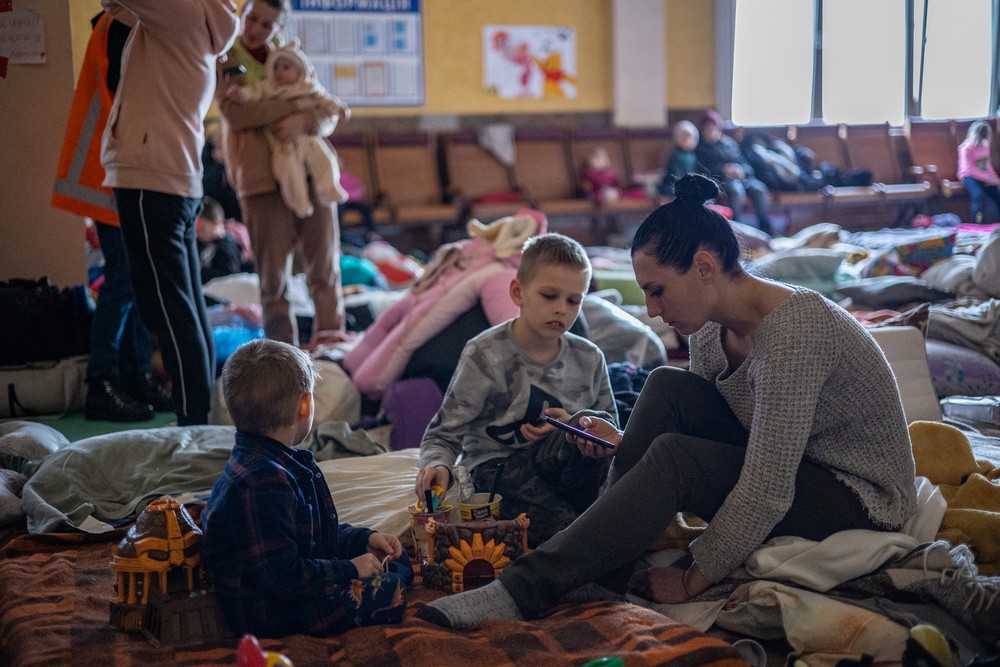Starting in July, there will be significant changes in the accommodation support provided to war refugees from Ukraine. A document issued by the Ministry of Labour raises concerns about potential internal migration.
To address the situation in the upcoming weeks, the document recommends mobilizing crisis accommodation facilities and exploring the option of expanding transportation back to Ukraine. These initial suggestions are based on an analysis of the possible scenario after July 1st, when the new set of regulations, known as Lex Ukraine, governing the reimbursement conditions for temporary protection accommodation, comes into effect.
The Ministry of Labour’s document specifically warns about the risk of tens of thousands of war refugees moving within the country and potentially losing their temporary housing due to these changes. The document, which served as the basis for a government coalition meeting in June, emphasizes that there is a potential for a massive housing shortage. It mentions the possibility of refugees without housing flocking to centers like Prague or even considering returning to Ukraine. The burden of this situation is likely to fall on municipalities.
According to the document, the estimated number of war refugees who may be affected by these changes ranges from 38,000 to 50,000. It acknowledges that not all of them will be able to secure new accommodation, primarily because the housing market is highly inflated in many areas, with limited availability and high rental and hostel prices for refugees. Additionally, some refugees will experience a decrease in income from benefits, exacerbating the problem.
NGO representatives, including Klára Šimáčková Laurenčíková, the government’s human rights commissioner and national coordinator for the adaptation and integration of refugees from Ukraine, have confirmed the concerns raised about the challenges refugees may face in finding accommodation. The national coordinator expresses her worry and states that they are doing their best within the limits of the approved law to minimize the impact.
The document also predicts that the wave of refugees will primarily head to the capital city. Magda Faltová, the director of the Association for Integration and Migration, highlights Prague Central Station as a natural migration hub. She mentions that many people have passed through the station, where volunteers continue to provide support. Faltová believes that in times of crisis, it is natural for people to gravitate towards such a central location.
However, the consequences of the change in state-supported housing for war refugees remain uncertain. Faltová emphasizes that while concerns exist, they are based on estimations, and the true reality is unknown even to them. She suggests that the emerging trend might show some individuals with sufficient finances being able to afford initial rents, but she also expresses concerns about the potential reemergence of tent cities.
To address these concerns, Klára Šimáčková Laurenčíková proposes considering emergency accommodation options in collaboration with Education Minister Bek (STAN). They have approached university rectors to explore the possibility of utilizing university accommodation capacities during the transition period and summer months.
Blanka Tollarová, a senior researcher at the Consortium of NGOs Working with Migrants, highlights the challenges faced by mixed refugee families. These families consist of both vulnerable and non-vulnerable members, with only the vulnerable individuals entitled to state-funded emergency accommodation starting in July. This situation puts families at risk of separation or forced relocation if landlords refuse to sign contracts with the non-vulnerable members.
Magda Faltová also points out that until recently, there has been insufficient information regarding the available financial support from July onwards. The lack of advance information hinders people’s ability to make informed decisions about housing.
On the other hand, the national coordinator assures that efforts are being made to ensure landlords are aware of the upcoming changes. Klára Šimáčková Laurenčíková explains that information has been disseminated in various stages over
Source: www.seznamzpravy.cz


















